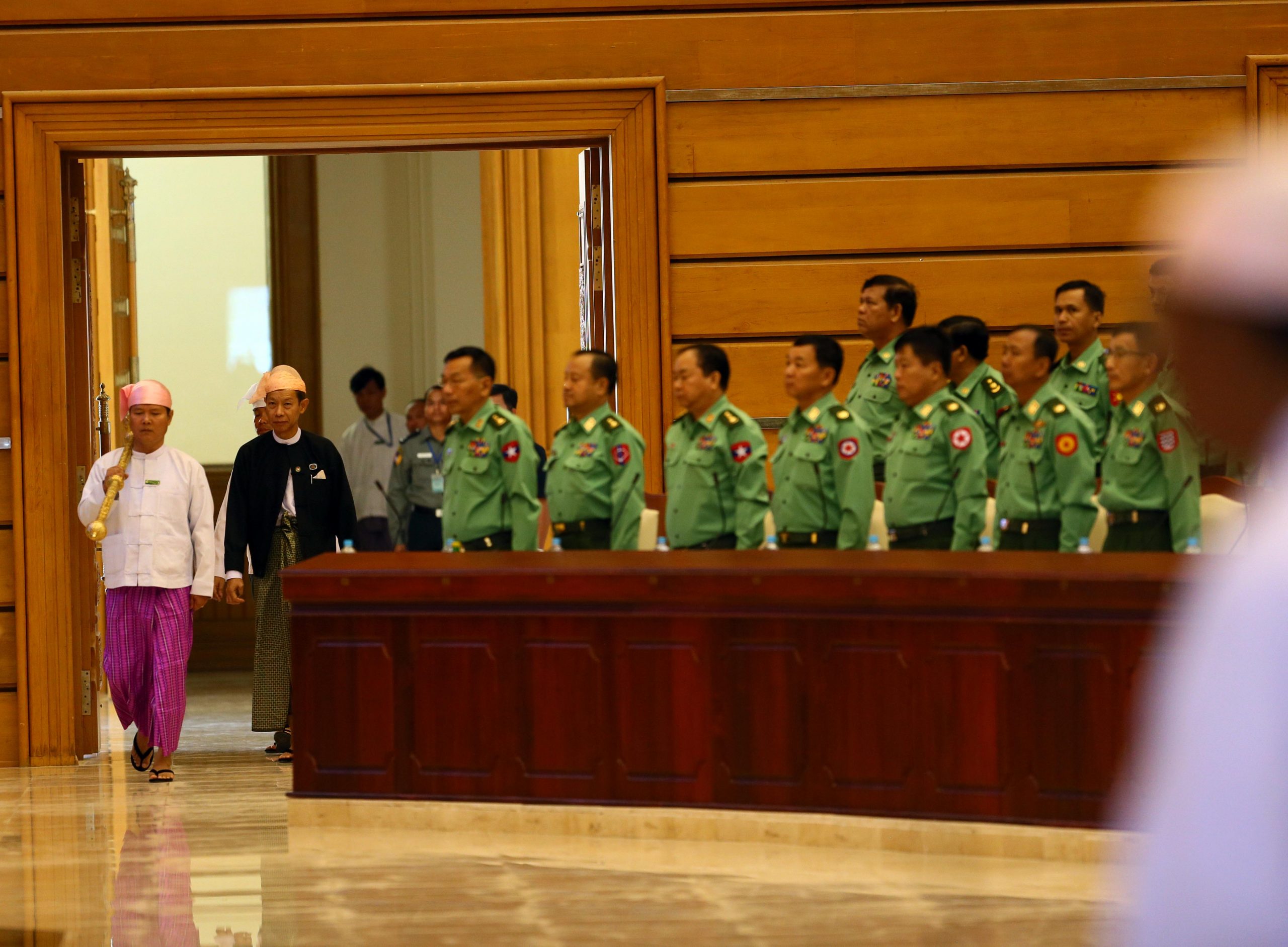Although a coalition of civil society organisations agrees with several members of the Union Solidarity and Development Party and military-appointed lawmakers in opposing proposed changes to Burma’s Peaceful Assembly and Procession Law, the CSOs say they have no plans to cooperate with the military bloc in ongoing resistance to the amendments.
Military MPs in the Upper House were among the staunchest opponents of an amendment bill that passed in that chamber on 8 March. The Lower House is due to soon deliberate the bill and nearly 60 military MPs have registered their names to discuss the proposed legislation.
Speaking to DVB on Monday, a member of a steering committee set up by the CSO coalition said the grouping would not offer support to the military-aligned lawmakers despite their shared opposition to the proposed changes to the law. Nanda Sitt Aung, the civil society activist, essentially argued that mutual disapproval of the legislation under consideration was the extent of the two sides’ common perspective, saying the CSO coalition was also opposed to the overall politics of the USDP and military.
“We value democratic standards. That’s why we won’t cooperate with them even though they are objecting to the bill,” he said.
The CSO steering committee plans to launch a sticker campaign in Yangon to raise awareness of the organisations’ concerns about the push to amend the assembly law, and the coalition has sent input on the proposed changes to the 274 Lower House MPs of the ruling National League for Democracy and United Nationalities Alliance, which includes 12 ethnic political parties.
[related]
“We want to discuss with the MPs or relevant parliamentary committee before the debate in the Lower House,” said Nanda Sitt Aung.
The legislation approved by the Upper House earlier this month adds a provision to the existing law stipulating that if there is any individual or organisation providing funding to hold a rally, the name and contact address of the funder, as well as the amount of money involved, shall be submitted to the relevant authorities.
The bill adds: “If there is evidence that a person is giving money, material goods or other types of favours [to attendees] to join the assembly, with the intention of disrupting security, rule of law, tranquility or public morality … then he or she may receive a maximum sentence of two years’ imprisonment and a fine.”
The bill passed by the Upper House amended an original proposal for a maximum three-year sentence for violators of the new provision.
Former lawmaker Nyo Nyo Thin, who is a member of an advisory sub-committee of the CSOs’ steering committee, criticised the proposed amendments to the law at a press conference on Monday. She said proponents of the changes were propagandising by framing them as an effort to prevent demonstrations organised by extremist nationalists, who have in the past been accused of inflating crowd sizes by paying attendees for their participation.
“We need to do public awareness about the bill. Most people don’t know about the bill and also don’t know why we are objecting,” she said.
Hundreds of demonstrators gathered in Yangon on 5 March to protest the proposed amendments to the law prior to passage in the Upper House, with critics saying the changes would further curb the ability of citizens to publically assemble.



